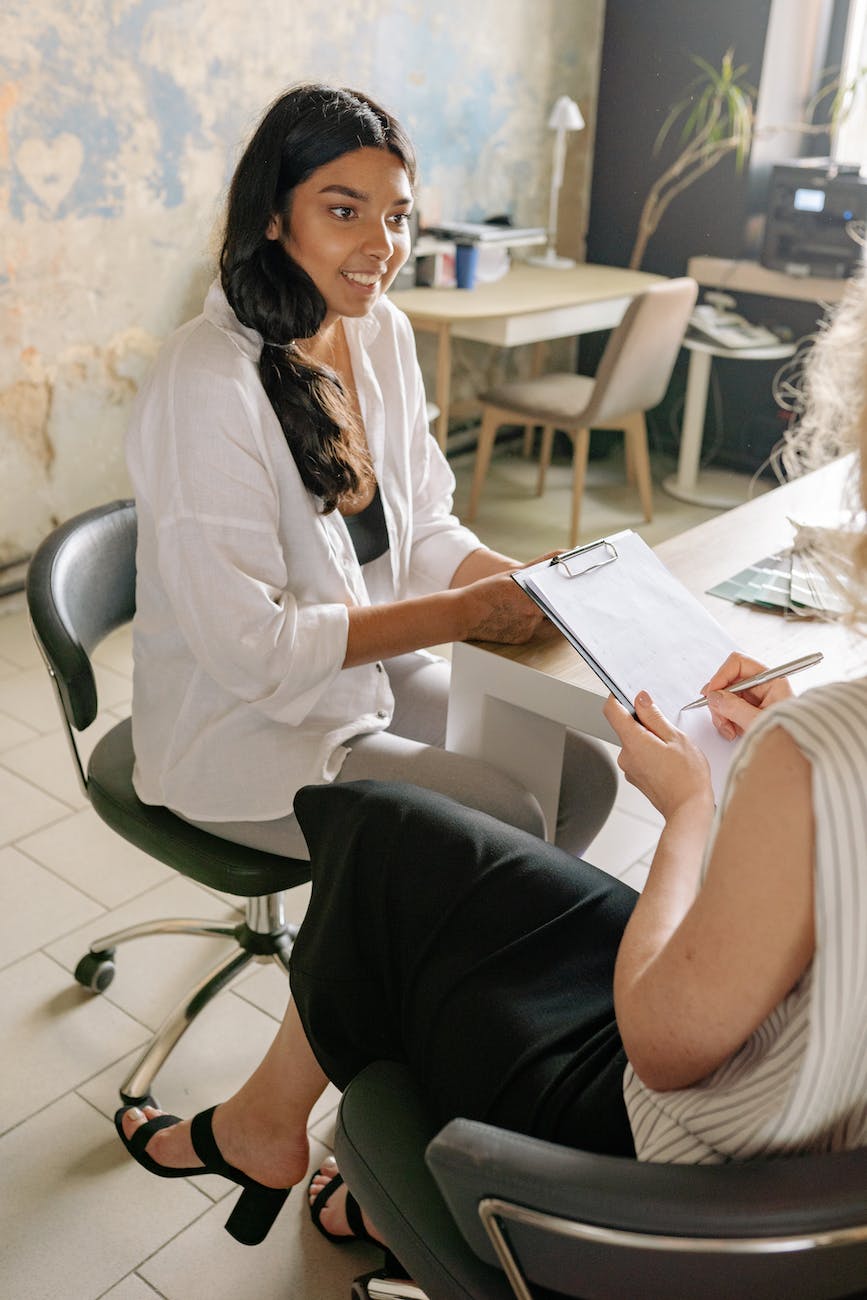Last updated on May 5th, 2024 at 09:23 pm
Are you preparing for a corporate interview? It can be daunting, but with the right preparation, you can ensure you are ready to shine. In this guide, we will walk you through everything you need to know to make a great impression on your interviewer. We’ll cover topics such as researching the company, dressing the part, and preparing for common interview questions. By following these tips, you’ll be well on landing the job of your dreams!

Start by researching the company:
When you are preparing for a corporate interview, it is important to start by doing your research on the company. This will help you learn about the company’s culture and values, giving you a better understanding of what they are looking for in a candidate. You can find this information on the company’s website or in online research. It is also a good idea to talk to someone who works for the company or has interviewed with them in the past, as they may be able to provide insights that you would not be able to get from researching alone.
Once you understand the company well, you should take some time to familiarize yourself with its products or services. This will show your interviewer that you are genuinely interested in the company and have taken the time to learn about what they do.
It’s also important to remember that your research should not stop once you walk into the interview room. Be sure to listen carefully to the interviewer and ask questions about anything you are unsure of. This will show that you are engaged in the conversation and genuinely interested in the company.
Dress the part:
When you are dressing for a corporate interview, it is important to remember that you are dressing for a professional setting. This means that you should avoid wearing anything too casual or revealing. Instead, opt for clothing that is more formal and professional looking. Some specific things to keep in mind when choosing your outfit include:
- Avoiding anything that is too tight, short, or low-cut
- Wearing business-appropriate colors such as black, navy blue, or gray
- Make sure your clothing is wrinkle-free and looks clean and well kept
- Choosing closed-toe shoes that are not too high heels
If you are unsure what to wear, it is always better to err on being too dressy rather than casual. This way, you will show the interviewer that you are taking the interview seriously and eager to make a good impression.
Also, remember to pay attention to your grooming and hygiene. Make sure if your hair is dry and damaged by considering to repair dry and damaged hair before the interview, and you are not wearing too much makeup or jewelry. You want the interviewer to focus on your qualifications and not be distracted by your appearance.
Prepare for common interview questions:
In addition to researching the company and dressing the part, it is also important to prepare for common interview questions that may be asked. Some examples of common interview questions are:
- Tell me about yourself
- What are your strengths and weaknesses?
- Why are you interested in this position?
- Where do you see yourself in five years?
- What is your greatest achievement?
- What is your greatest failure?
- Describe a time when you had to deal with a difficult situation.
It is essential to have answers prepared for these questions that will highlight your skills and qualifications for the job. However, it is also important to avoid sounding rehearsed by taking the time to personalize your responses.
In addition, you should also be prepared to ask the interviewer questions about the job and the company. This will show them that you are truly interested in the position and that you have done your research. Some examples of good questions to ask are:
- What are the day-to-day responsibilities of this position?
- What challenges does this department/team currently face?
- What type of training will be provided for this role?
- What are the long-term goals for this company/department?
Asking questions is also an excellent opportunity to show off your knowledge about the company and demonstrate your interest in the position. For example, how can you benefit the department they’re hiring for?
Practice, practice, practice:
Once you have done your research and prepared for common interview questions, practicing your answers out loud is important. This will help you not only feel more confident going into the interview but will also help you to sound more polished and professional. You can practice by yourself or with a friend or family member. If you practice with someone else, have them ask you common questions that may come up in an interview so that you can get used to hearing them out loud. Practicing your answers will also help ensure you don’t go blank when asked a question in the interview.
Pay attention to your body language and nonverbal cues when practicing your answers. According to The Muse, “Your energy, eye contact, hand gestures, posture, and tone all color the message you’re sending—so it’s important to be aware of the nonverbal signals you might inadvertently be sending. Practice in front of a mirror or tape yourself to see (and correct) any negative body language before your big day.”

Arrive early and relaxed:
On the day of your interview, it is crucial to arrive early. This will give you time to gather your thoughts and relax before the interview. If you are driving, map out your route and factor in traffic. If you are taking public transportation, give yourself plenty of time to get to the interview location. It is better to arrive early and have some time to kill than to arrive frazzled and flustered.
Once you have arrived at the interview location, take a few deep breaths and try to relax. Of course, this is easier said than done, but it is vital to remain calm. The interviewer will be able to tell if you are nervous, so it is important to try to keep your cool.
If you have time before the interview, you can also use this opportunity to do a final run-through of your answers to common interview questions. This will help you feel more prepared and confident when the time comes.
Make a good first impression:
First impressions are essential, so it is important to make sure that you make a good one. This starts with your appearance. It is critical to dress appropriately for the interview. This means that you should avoid wearing anything too casual or revealing.
You should also ensure that your hair is well-groomed and that you wear minimal makeup. You should also be aware of your body language. Make sure to sit up straight and maintain eye contact with the interviewer. Avoid fidgeting or playing with your hair. Finally, remember to smile!
Another critical aspect of making an excellent first impression is being on time. Make sure to arrive at least ten minutes early for your interview so that you have time to fill out any necessary paperwork and get settled in.
Follow up after the interview:
Once the interview is over, it is essential to follow up with a thank you note. This shows that you are grateful for the time they took to interview you and also reaffirm your interest in the position. Furthermore, it is a chance to reiterate why you would be the best candidate for the job and how excited you are about it. Email is usually the best method of communication, but if you interview someone higher up in the company, consider sending a handwritten note.
After following these steps, you should feel well-prepared for your corporate interview. Remember to stay calm and confident, and let your qualifications speak for themselves. Good luck!






